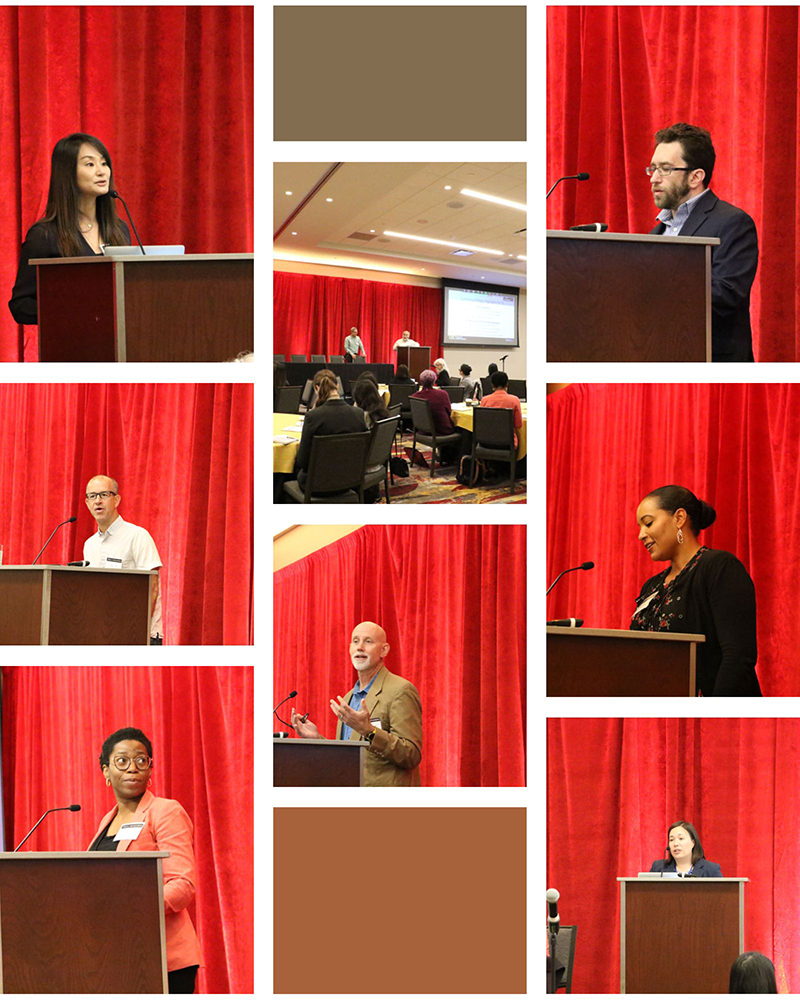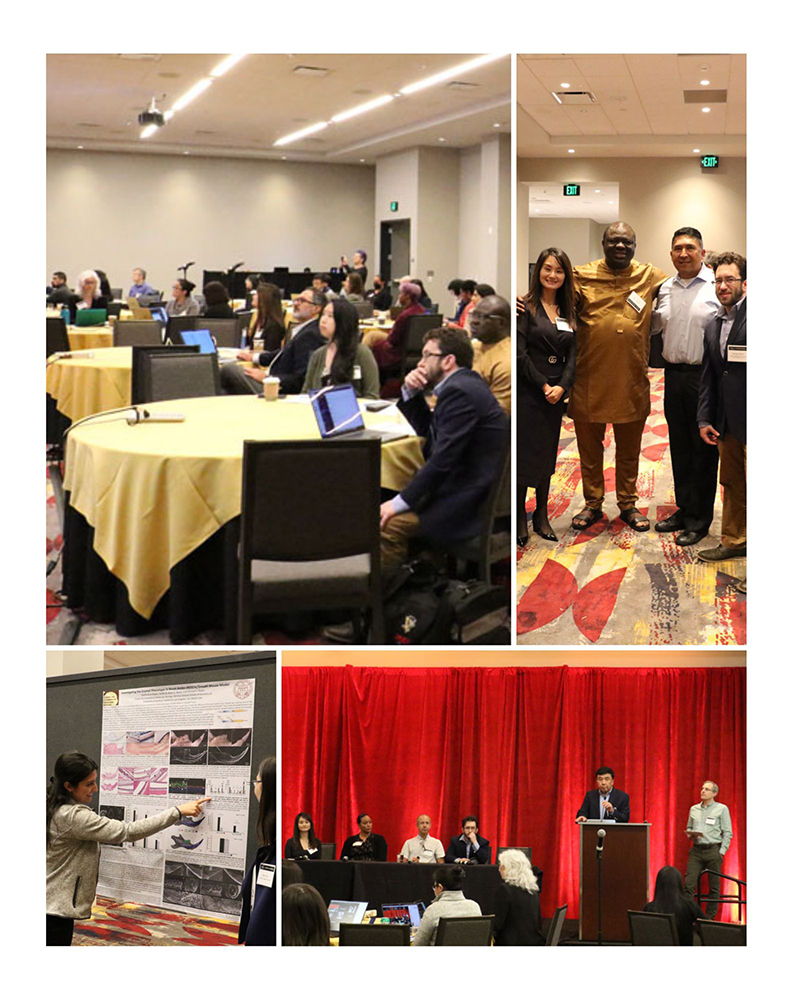News & Events
FaceBase Virtual Bootcamp: Updated Features and DMS Guidance (29 August 2023)
FaceBase is hosting a virtual bootcamp tailored for both users and data contributors, whether you’re a seasoned user of FaceBase or looking to contribute data for the first time.
🗓 Date: Thursday, September 28
Highlights:
- Get a tour of the the updated website and documentation site.
- Discover new and updated features designed to enhance your data exploration experience.
- Become familiar with the data submission process.
- Learn how to fill out the updated Data Management Sharing (DMS) plans for sharing on FaceBase.
- Ask questions directly from FaceBase Hub staff about data you’re looking for or data you want to contribute.
Agenda:
-
1:00 pm to 2:15 pm Eastern - Users: Overview of the updated website, new documentation, search interface functionality, citation procedures, and protocol for requesting human subjects data.
-
2:30 pm to 4:00 pm Eastern - Data Contributors: Explanation of the DMS plans regarding FaceBase contributions, procedures for contributing data, and details about the data upload curation.
This bootcamp is tailored for craniofacial researchers, biologists, geneticists, clinicians, and students interested in accessing craniofacial biomedical data, understanding updated platform functionalities, or those looking to contribute data in compliance with NIH data-sharing requirements.
Participation: Registration via Zoom is required. A confirmation email will be sent upon registration.
Full Agenda: For those seeking a detailed schedule, view the full agenda here.
Inquiries: Please direct any questions to help@facebase.org.
Explore Omics Data in FaceBase with our new video! (17 August 2023)
We are excited to announce the release of our latest educational content: a video dedicated to omics data, tailored to provide a look into the multifaceted world of genomics, transcriptomics, and epigenomics, and how they integrate within the FaceBase platform.
Highlights of the new Omics Video:
- Finding Omics Data via Experiment Types: Understand the intricacies of genomic, transcriptomic, and epigenomic data and learn how to search for them via the Experiment Types and other facets in the Data Browser.
- Data Visualization Tools: An inside look into our integrated visualization tools such as the UCSC Genome Browser and the UCSC Cell Browser.
- Human Genomics Analysis Interface (HGAI): Delve into human craniofacial genomics projects, offering insights into studies of orofacial clefts, facial variations, and dental disorders.
Find this new video on our YouTube channel: https://youtu.be/pRG847lDulg
We continually strive to offer resources that enrich your research endeavors. Your feedback is invaluable to us. After watching, please take a moment to share your thoughts or suggestions for future content. Together, we can further the boundaries of craniofacial, dental, and oral research.
Materials from the 2023 FaceBase Community Forum are now available to the public! (04 August 2023)
As we look back to the 2023 FaceBase Community Forum that took place on June 13th in sunny Los Angeles, we’re reminded of the strides we took that day. This year’s gathering brought together the worlds of clinical/pre-clinical research, data science, and foundational research. It was an eye-opener for many, as they ventured beyond their specialties, drawing parallels, and recognizing the interconnectedness of the vast DOC research landscape.
For those who couldn’t join us, we’ve published a selection of materials from the forum that are now available to the public.
Guide to Slides, Webcasts and Posters - FaceBase 2023 Community Forum (Public Edition): Access the Google Doc (Please note, this contains only the materials approved for public viewing.)
Bios of Presenters and Moderators: Access the PDF
We wanted to give a special thank you to this year’s distinguished guest speakers: Rena D’Souza (Director of NIH/NIDCR), Olivier Duverger (NIH/NIDCR), Mary L. Marazita (Univ of Pittsburgh), Jin Xiao (Univ of Rochester), Abimbola Oladayo (Univ of Iowa), Jay Patel (Temple Univ), Harrison Brand (Harvard), Ross Whitaker (Univ of Utah), Gage Crump (USC), Hong Li (Univ of Colorado), Crystal Rogers (UCSF), Noffisat Oki (NIH/NIDCR) and Alicia Chou (NIH/NIDCR).
Our outstanding moderators kept the meeting running smoothly and provided context for our different speaker sessions - thanks also go out to: Pedro Sanchez (Cedars-Sinai), Emile Vieta-Ferrer (UCLA), Joe Hacia (USC), Jifan Feng (USC), Jimmy Hu (UCLA) and Stacy Nguyen (Boston College).
The foundation for the success of this Forum was laid by our esteemed Program Committee: Azeez Butali (Univ of Iowa), Rucha Arun Bapat (USC), Harrison Brand (Harvard), Joseph Hacia (USC), Erica Hutchins (UCSF), Stacy Nguyen (Boston College), Pedro Sanchez (Cedars-Sinai), Susan Walsh (Indiana Univ Indianapolis), and Katy Weisensee (Clemson). Their efforts, coupled with the invaluable direction from our NIH/NIDCR program staff, helped make this forum a landmark in DOC research dialogues!
We’re already laying down the groundwork for our next forum and ready to carry forward the energy and inspiration from this summer. Look out for our save the date for 2024!
Here are some photos from the event:

First column: Jin Xing, Gage Crump, Noffisat Oki. Second column: Carl Kesselman with Rob Schuler and Ross Whitaker. Third column: Harrison Brand, Crystal Rogers and Alicia Chou.

From top left, clockwise: Attendees; Group shot of Jin Xiao, Azeez Butali, Pedro Sanchez and Harrison Brand; Panel moderated by Yang Chai and Rob Schuler; Rucha Bapat at the poster session.

FaceBase Hub and NIDCR Program Staff (front row from left to right): Noffisat Oki, Alicia Chou, Linda Hattemer, Laura Pearlman, Lu Wang, Cris Williams, Carl Kesselman, VyVy Nguyen, Jifan Feng and Thach-Vu Ho. (back row, from left to right): Joe Hacia, Rob Schuler, Yang Chai and Alejandro Bugacov.
We've launched our website refresh and new docs site! (21 June 2023)
We are excited to present our newly updated website, designed after usability testing with consultant group, Interface Guru, led by Cia Romano. Explore the following features to enhance your FaceBase experience and if you have any comments, feedback or suggestions, please send them to help@facebase.org:
-
Keyword Search on the Homepage: Find information quickly and effortlessly with our keyword search functionality, right from the the big search field on the homepage.
-
Informative Charts: Gain insights into the breadth and depth of data available on FaceBase through visually appealing charts. The homepage displays the number of subjects per species as well as Experiment Types per species.
-
Welcome page: New to FaceBase? Please go to our new Welcome page which provides some great starting points for exploring what FaceBase has to offer.
-
Updated navigation: Please look at the menu at the top of the website and its new organization, centered around the following: Data (the lifeblood of FaceBase is the sharing of data, Resources (showcasing additional resources provided by the FaceBase Community), Contribute (describing the process of preparing and contributing your data for sharing on FaceBase), Policies (describing our data policies, especially for controlled-access data), Community (learn about FaceBase and the many ways you can participate at Forums, Office Hours and more!) and Help (with FAQs, citing information, and pointers to documentation and videos).
-
Organism-Specific Resource Pages: We understand the significance of organism-specific resources in your work. Our revamped website now offers dedicated resource pages for three major organisms - including charts displaying breadth and depth of data available, internally hosted resources and external resources: mouse, human, and zebrafish.
-
New Documentation Site: As part of our commitment to providing comprehensive support, we have launched our new documentation site at docs.facebase.org. This site serves as a valuable hub for all your technical queries, FAQs, and helpful guides. Access the knowledge base to navigate FaceBase effectively and leverage its full potential in your research endeavors.
Remember, if you have any comments, feedback or suggestions, please send them to help@facebase.org or fill out the Feedback Form. We want facebase.org to be a living and evolving resource for you and we are always learning how to serve the dental, oral and craniofacial research community.
Thank you for a successful FaceBase Community Forum! (16 June 2023)
We are so grateful for such a successful FaceBase Community Forum! Cheers to the following participants who provided such insights and inspiration and made the meeting so special:
Speakers and Moderators
Here are the speakers and moderators that made this meeting so rich in knowledge-sharing - Bios of Speakers and Moderators:
Speakers: Rena D’Souza, Director of NIDCR (NIH/NIDCR); Mary Marazita (Univ of Pittsburgh); Jin Xiao (Univ of Rochester); Olivier Duverger (NIH/NIDCR); Abimbola Oladayo (Univ of Iowa); Jay Patel (Temple University); Harrison Brand (Harvard University); Ross Whitaker (Univ of Utah); Gage Crump (USC); Hong Li (Univ of Colorado, School of Dental Medicine); Crystal Rogers (UC Davis); Alicia Chou (NIH/NIDCR) and Noffisat Oki (NIH/NIDCR). We’d also like to give a shout out to our Hub presenters: Yang Chai, Carl Kesselman, Rob Schuler, Alejandro Bugacov, and Laura Pearlman (University of Southern California).
Moderators: For the Clinical and Public Health Session: Pedro Sanchez (Cedars-Sinai) and Emile Vieta (UCLA). For the Data Science Session: Joseph Hacia (University of Southern California) and Jifan Feng (University of Southern California). For the Basic Research Session: Jimmy Hu (UCLA) and Stacy Nguyen (Boston College).
Poster Presenters
You can find abstracts and contats for the publicly available posters here. Our amazing presenters from our poster session are: Emmanuel Aladenika (University of Iowa), Allyn Auslander (Operation Smile), Rucha Bapat (University of Southern California), Jifan Feng (University of Southern California), Tingwei Guo (University of Southern California), Eva Janeckova (University of Southern California), Mengmeng Liu (University of Southern California), Fei Pei (University of Southern California), Frankie Wilke (Indiana University - Purdue University), Mingyi Zhang (University of Southern California) and Heliya Ziaei (University of Southern California).
Program Committee
We would also like to express our appreciation to the Program Committee who helped us put together the best FaceBase Community Forum yet! All of our thanks go to: Rucha Arun Bapat (University of Southern California), Harrison Brand (Harvard), Azeez Butali (University of Iowa), Joseph Hacia (University of Southern California), Erica Hutchins (University of California San Francisco), Stacy Nguyen (Boston College), Pedro Sanchez (Cedars-Sinai), Susan Walsh (Indiana University - Purdue University) and Katherine Weisensee (Clemson University)
The FaceBase Hub thanks all of the above and all of those who joined us - both in person and virtually. More materials from the meeting will be distributed to the public very soon. And we’re already looking forward to getting together again in 2024!
